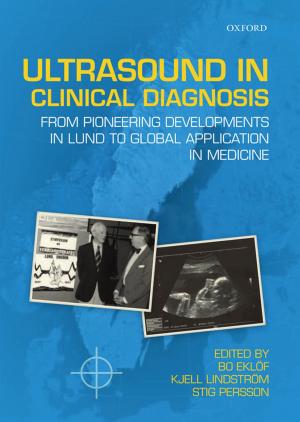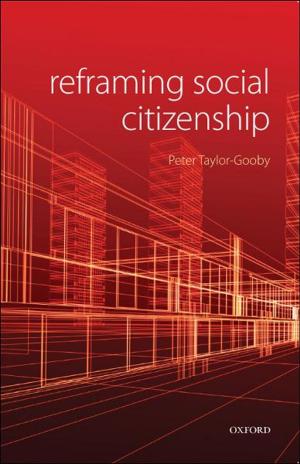Global Health Governance in International Society
Nonfiction, Social & Cultural Studies, Political Science, International, International Relations, Politics, History & Theory| Author: | Jeremy Youde | ISBN: | 9780192542427 |
| Publisher: | OUP Oxford | Publication: | February 2, 2018 |
| Imprint: | OUP Oxford | Language: | English |
| Author: | Jeremy Youde |
| ISBN: | 9780192542427 |
| Publisher: | OUP Oxford |
| Publication: | February 2, 2018 |
| Imprint: | OUP Oxford |
| Language: | English |
In the 1980s, health was a marginal issue on the international political agenda, and it barely figured into donor states' foreign aid allocation. Within a generation, health had developed a robust set of governance structures that drive significant global political action, incorporate a wide range of actors, and receive increasing levels of funding. What explains this dramatic change over such a short period of time? Drawing on the English School of international relations theory, this book argues that global health has emerged as a secondary institution within international society. Rather than being a side issue, global health now occupies an important role. Addressing global health issues-financially, organizationally, and politically-is part of how actors demonstrate their willingness and ability to help realize their moral responsibility and obligation to others. In this way, it demonstrates how global health governance has emerged, grown, and persisted-even in the face of global economic challenges and inadequate responses to particular health crises. The book also shows how English School conceptions of international society would benefit from expanding their analytical gaze to address international economic issues and incorporate non-state actors. The book begins by building a case for using the English School to understand the role of global health governance before looking at global health governance's place in international society through case studies about the growth of development assistance for health, the international response to the Ebola outbreak, and China's role within the global health governance framework. .
In the 1980s, health was a marginal issue on the international political agenda, and it barely figured into donor states' foreign aid allocation. Within a generation, health had developed a robust set of governance structures that drive significant global political action, incorporate a wide range of actors, and receive increasing levels of funding. What explains this dramatic change over such a short period of time? Drawing on the English School of international relations theory, this book argues that global health has emerged as a secondary institution within international society. Rather than being a side issue, global health now occupies an important role. Addressing global health issues-financially, organizationally, and politically-is part of how actors demonstrate their willingness and ability to help realize their moral responsibility and obligation to others. In this way, it demonstrates how global health governance has emerged, grown, and persisted-even in the face of global economic challenges and inadequate responses to particular health crises. The book also shows how English School conceptions of international society would benefit from expanding their analytical gaze to address international economic issues and incorporate non-state actors. The book begins by building a case for using the English School to understand the role of global health governance before looking at global health governance's place in international society through case studies about the growth of development assistance for health, the international response to the Ebola outbreak, and China's role within the global health governance framework. .















